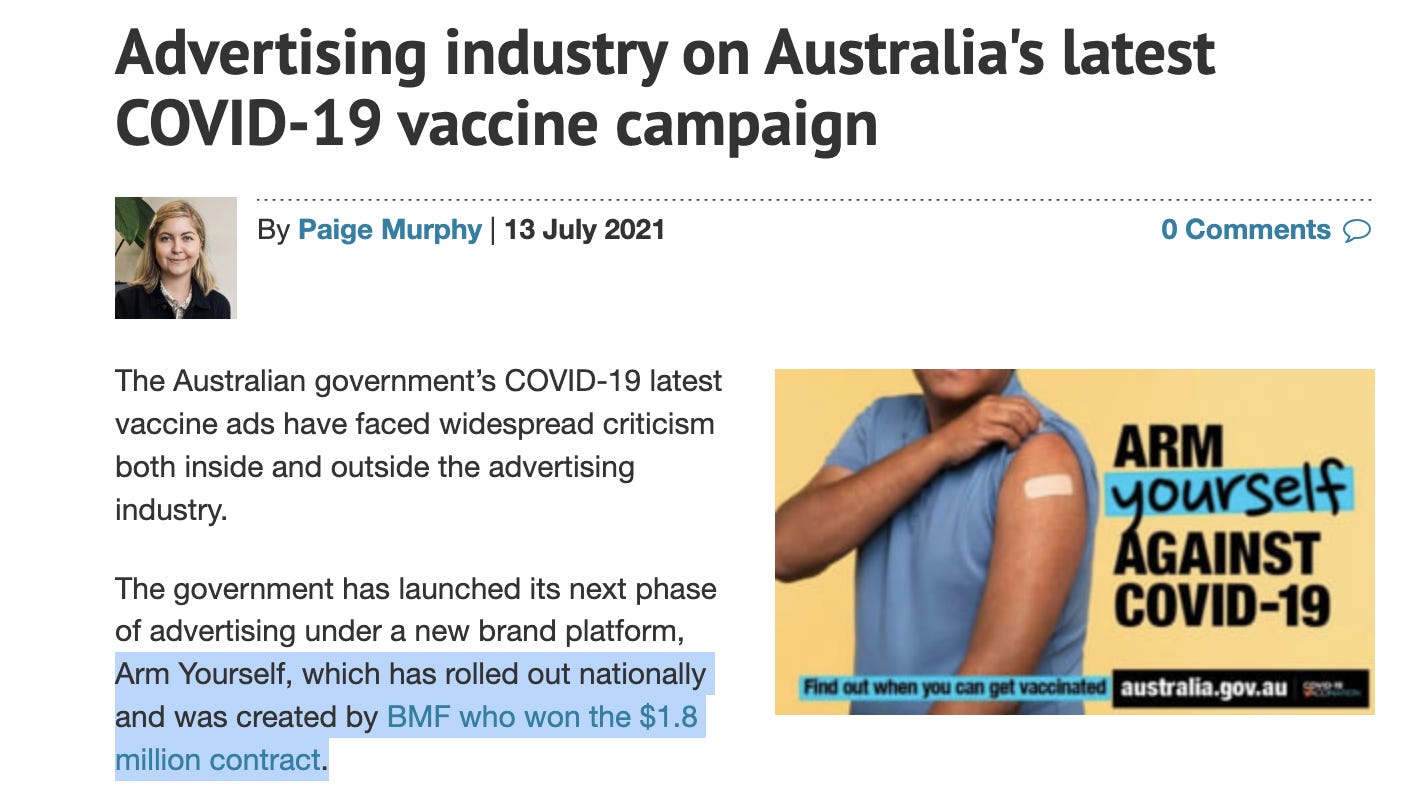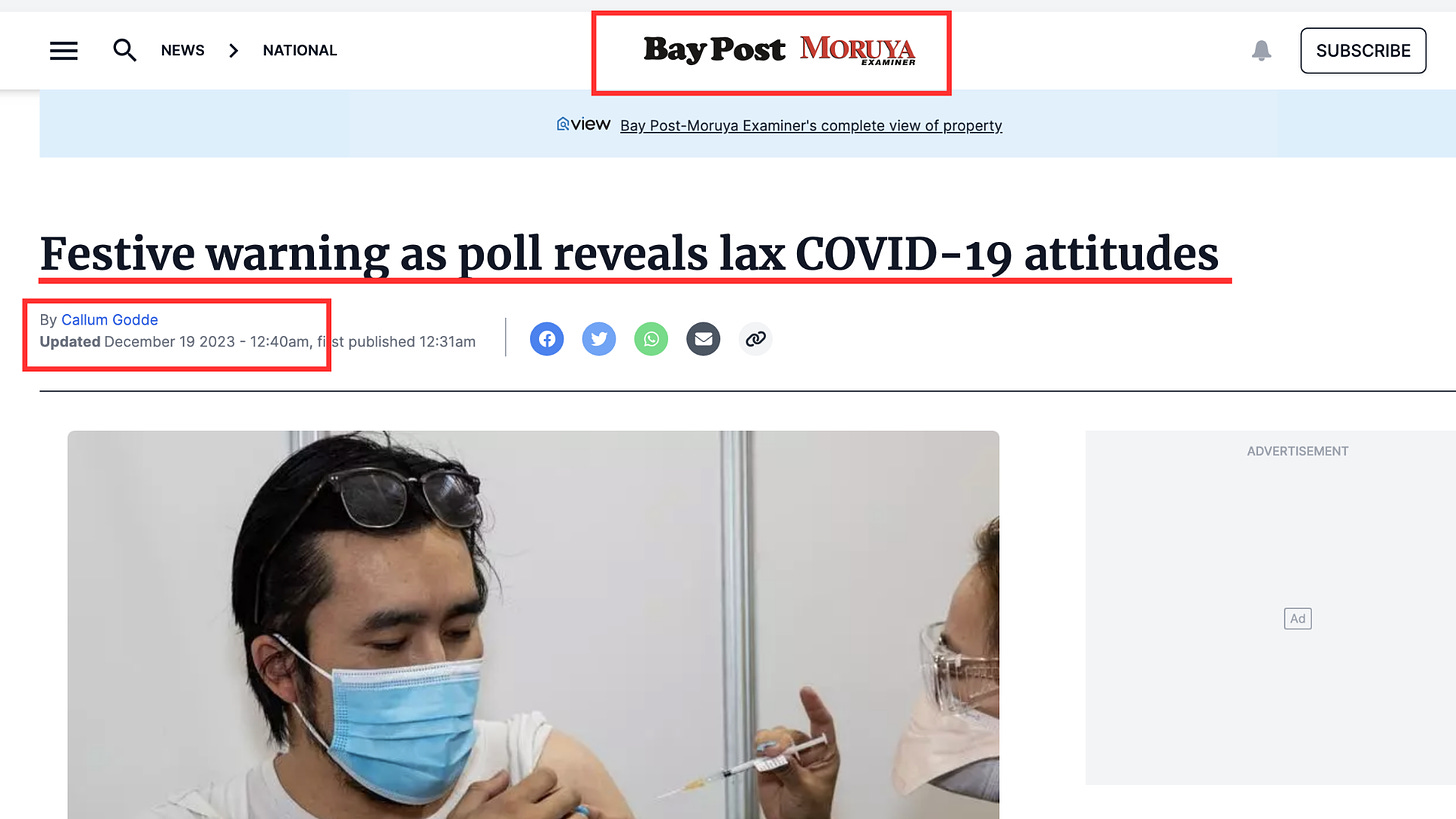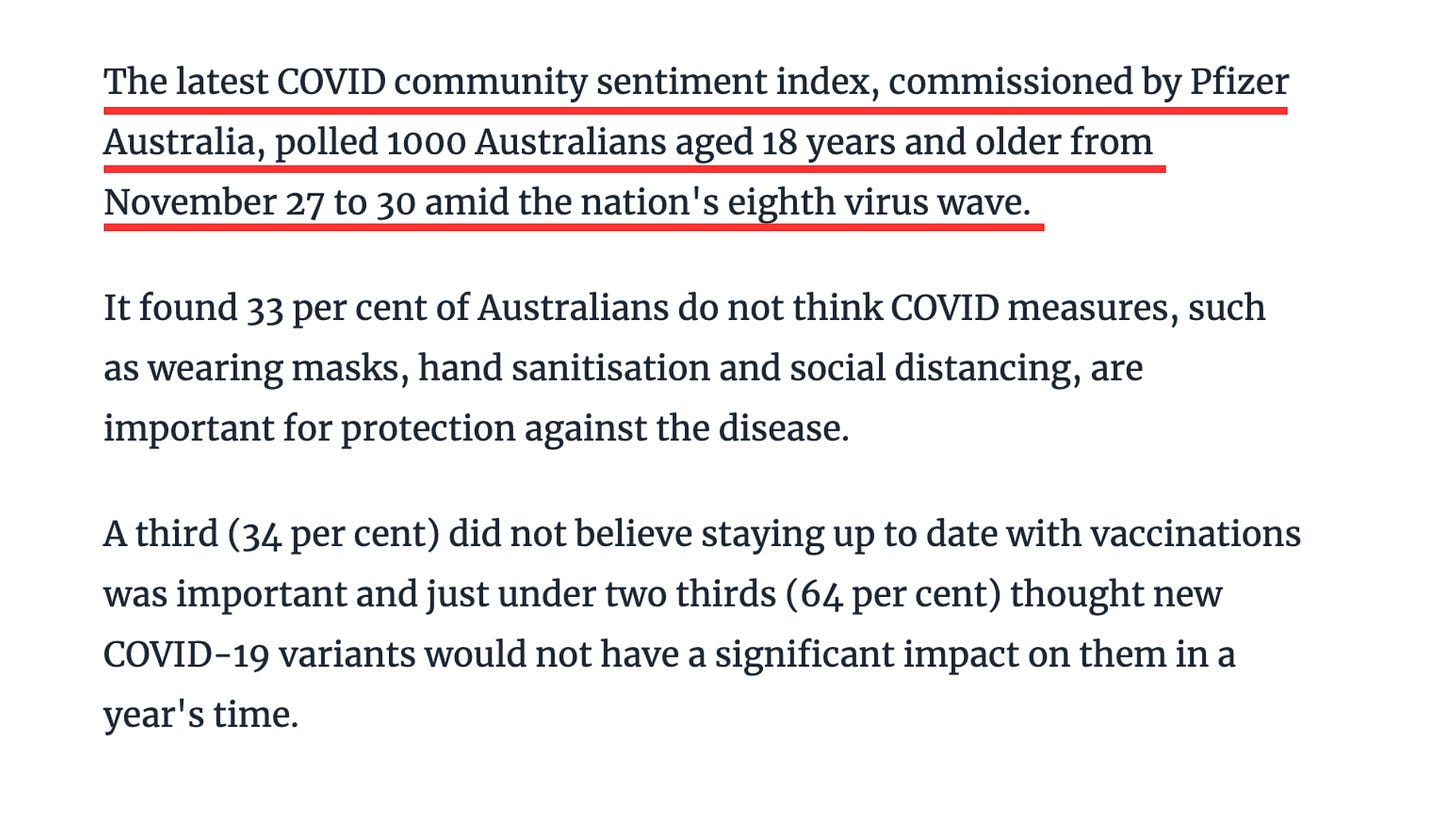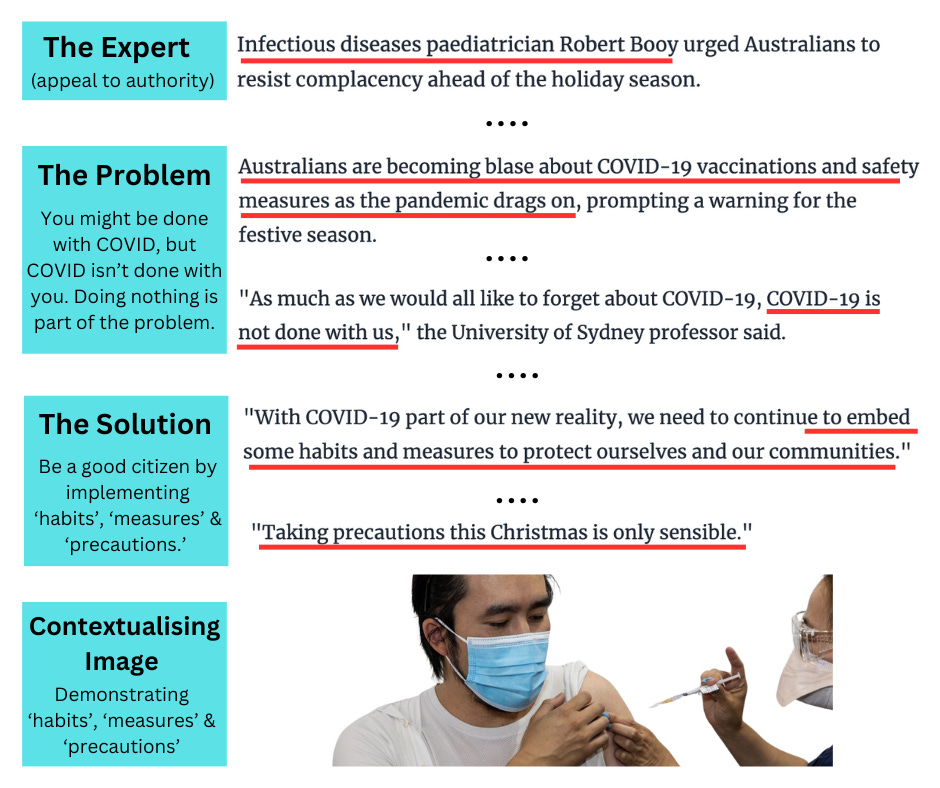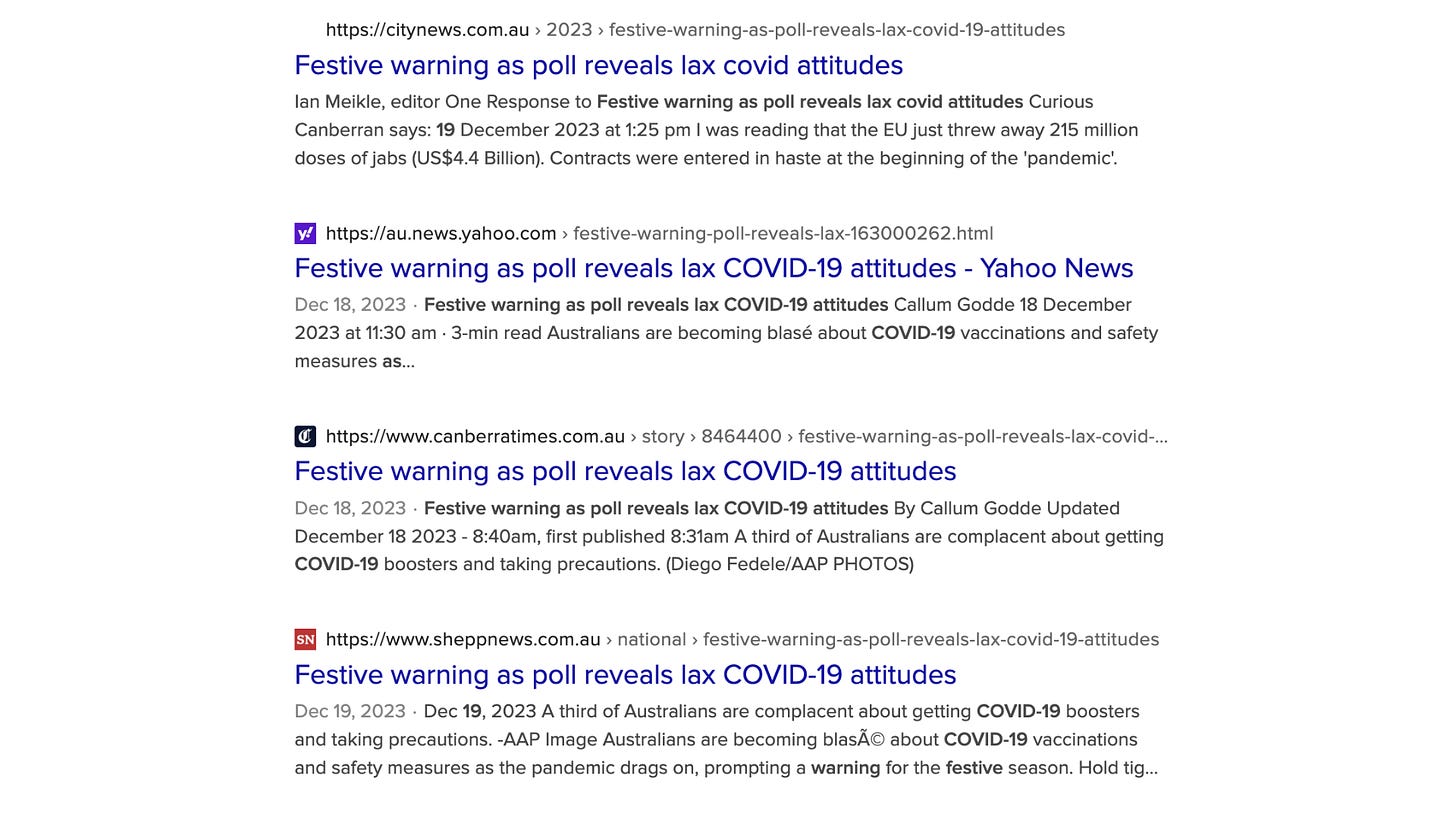How Big Pharma harnesses our Tax Money and News Media to Market their Drugs
Rebekah Barnett: Dystopian Down Under
In most countries, Big Pharma is not allowed to advertise vaccines and prescription medicines direct to consumers, and advertising of over-the-counter medicines is tightly regulated.1
That’s not a problem for Pharma. There are plenty of other workarounds to promote drugs without direct ad spend.
You can lobby governments to recommend and even mandate your drugs. Smooth operators can wrangle government spending of public funds to advertise Big Pharma products, which were also purchased with public funds at jacked-up prices. Expect strong support for this tactic from the advertising industry, which stands to win lucrative government contracts to push Pharma products.
Another less conspicuous tactic is to co-opt the news media to market your product for you. The process is quite straightforward and relatively cheap, as demonstrated in this local news article from the regional Bay Post/Moruya Examiner, ‘Festive warning as poll reveals lax COVID-19 attitudes’.
1. Pharma pays for market research
2. Pharma crafts results into press release urging take up of the target product, forwards to news syndicator
Ideally, the press release does not appear on Pharma’s regular media page, as it’s important that this looks like organic news coming from a trusted news source, not the marketing campaign that it is.
3. News syndicator lightly edits press release, publishes as news
Quotes from Experts obliquely recommending the product should be inserted. This can be done either at stage #2 or #3. Use framing as a device to minimise the appearance of Experts and media being seen to overtly give health advice or push Pharma products. Frame low vaccination uptake as a problem, followed by Experts calling on the public to ‘take precautions’ (i.e.: the solution), accompanied by images of vaccination (i.e.: precaution/solution).
4. Local news outlets republish syndicated article as local news
Voila! A plethora of advertorials disguised as ‘local news’ for the small price of conducting a public poll. This format is adaptable to all major industries - Big Energy, Big Agriculture, Big Food, and so on. Like mRNA tech, just plug and play.
Combined with blanket indemnity on secret purchase agreements with governments to the value of billions of dollars, this is quite the business model.
To follow Rebekah Barnett's excellent work follow her on Dystopian Down Under here, on X or on Instagram.





